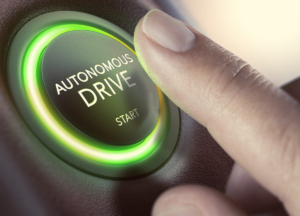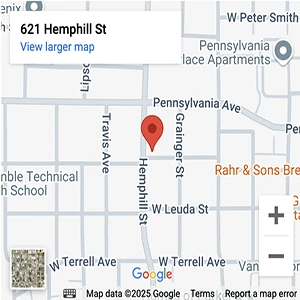New Revelations in Self-Driving Car Fatality
PARIS, Texas. According to U.S. News & World Report, a Texas law passed last September gives autonomous vehicle companies the right to test their vehicles on the state’s roads. The companies are not required to have a safety driver inside the vehicle. Texas passed these laws to make the state friendlier to economic growth and to draw driverless vehicle companies to the state. Yet, the recent driverless car fatality in Arizona has left many people worried about whether the vehicles are safe. New information about the accident has now come to light.

Finger pressing a push button to start a self-driving car. Composite image between a hand photography and a 3D background.
According to Tech Crunch, the self-driving Uber vehicle detected the pedestrian before she was struck, but reports indicate that the car’s emergency braking system had been disabled. In fact, reports indicate that the self-driving vehicle’s sensors had detected the pedestrian’s presence 6 seconds before the collision occurred, but the vehicle did not stop. The braking system had been intentionally disabled in order to prevent erratic braking behavior. As a result of this, the role of the back-up driver inside the vehicle became even more crucial. Yet, researchers have already expressed alarm about relying on back-up drivers to react quickly enough in an emergency. The longer a vehicle operates smoothly, the more the human driver will put his or her guard down. This is why many companies want to make their vehicles either completely autonomous or not autonomous at all.
Reports also indicate that the autonomous vehicle had no method to alert the driver that something or someone was in the road. Given that the company was relying on the driver to react, it isn’t clear why there wouldn’t have been an alert system in place.
It appears that a series of events happened that resulted in the accident. (1) The vehicle became “aware” of the pedestrian with 6 seconds to spare. (2) The vehicle had no method to warn the driver that the pedestrian was in the road. (3) 1.3 seconds before the accident occurred, the computer system became “aware” that it would need to stop, but could not employ its emergency brake systems because they were disabled.
The revelations are disturbing because they show some serious oversights. For example, why wasn’t there an alarm on the car to warn the driver 6 seconds before the accident took place? And, even more disturbing, why did the company prioritize smooth operation over general safety by disabling the brakes?
These issues are deeply concerning and should be noted, especially if driverless cars will be tested on Texas roads. The Cooper Law Firm are Paris, Texas car accident lawyers who are closely watching how driverless technology changes the world. It appears that the technology does have the ability to make roads safer and detect hazards. Programmers, however, seem prone to an old problem: human error.
The vast majority of car accidents occur due to human error. If you or a loved one was hurt in a car accident involving human error, you may have rights under the law. Visit us at https://cooper-law-firm.com/ to learn more about your rights and options.
Cooper Law Firm
501 N Third St,
Longview, TX 75601
Telephone: (903) 297-0037









